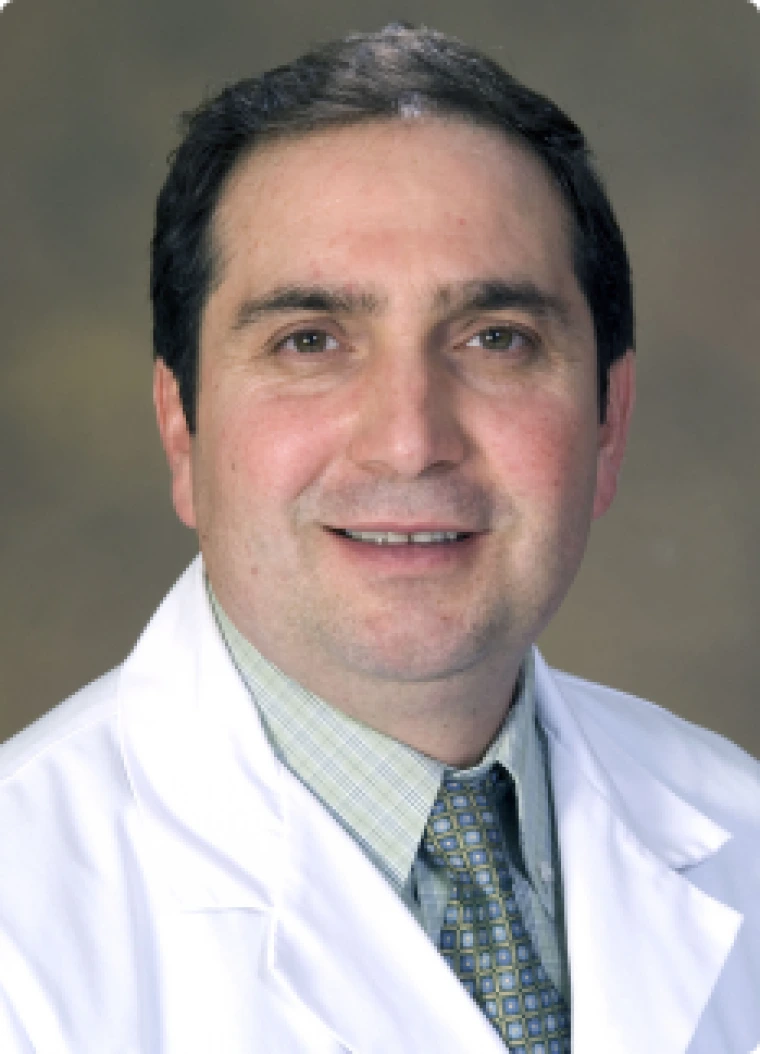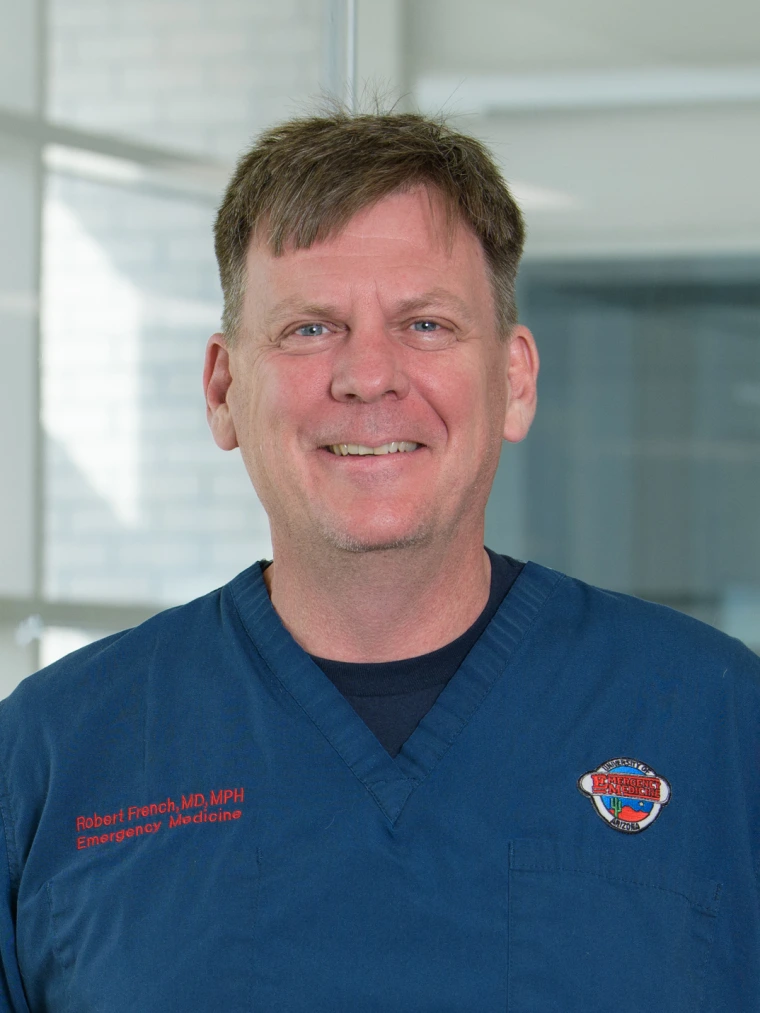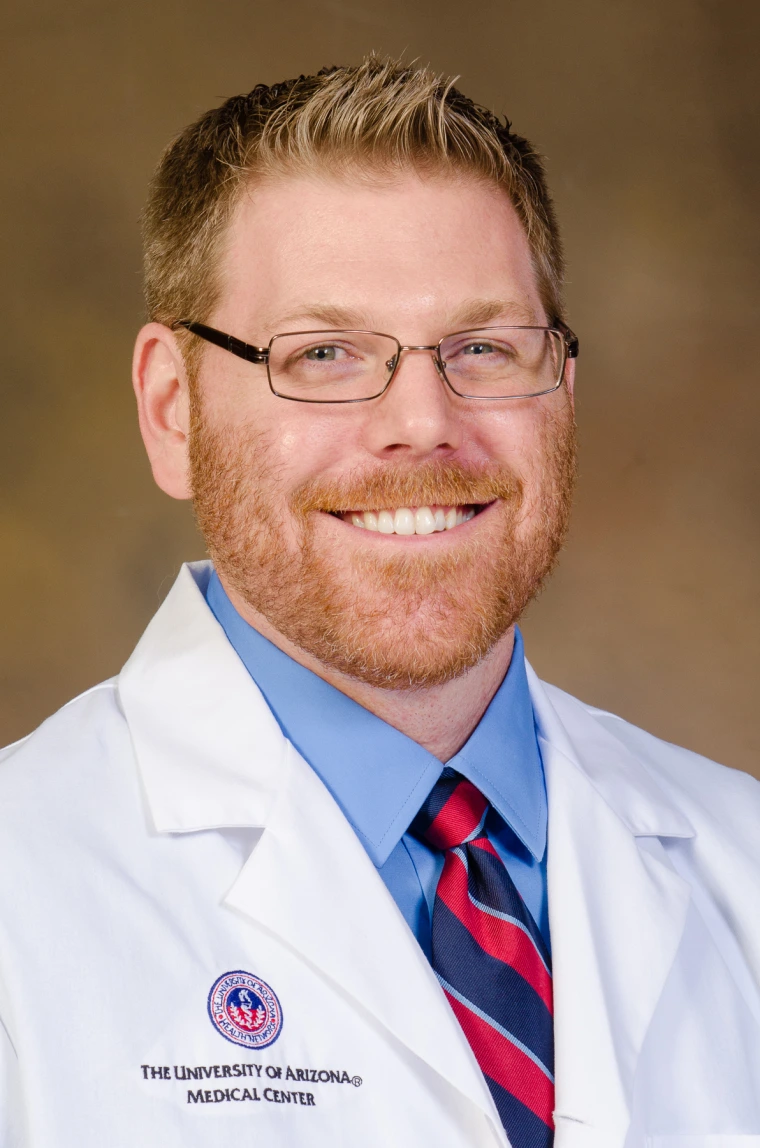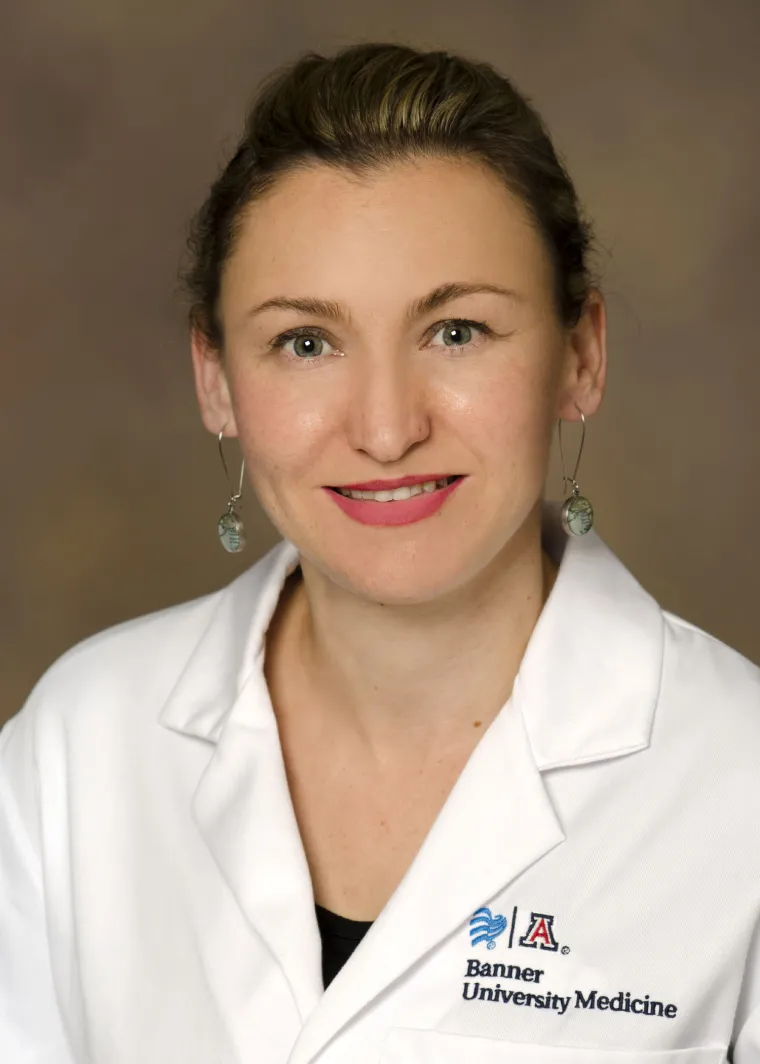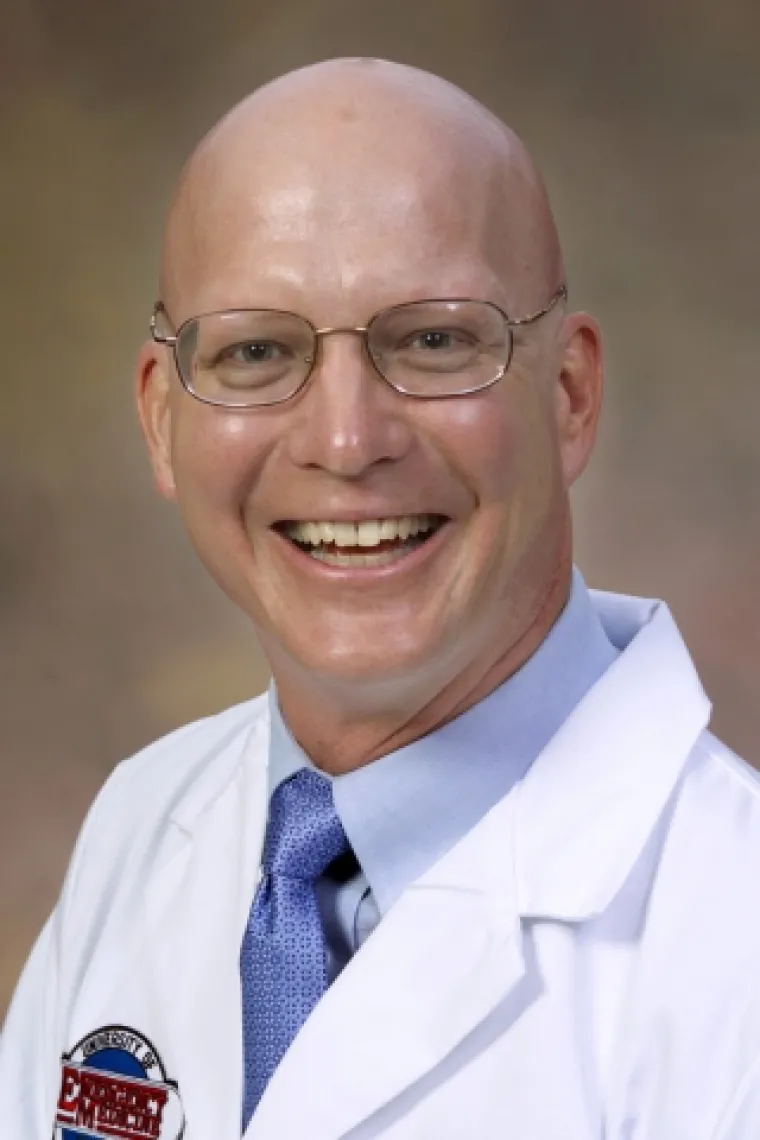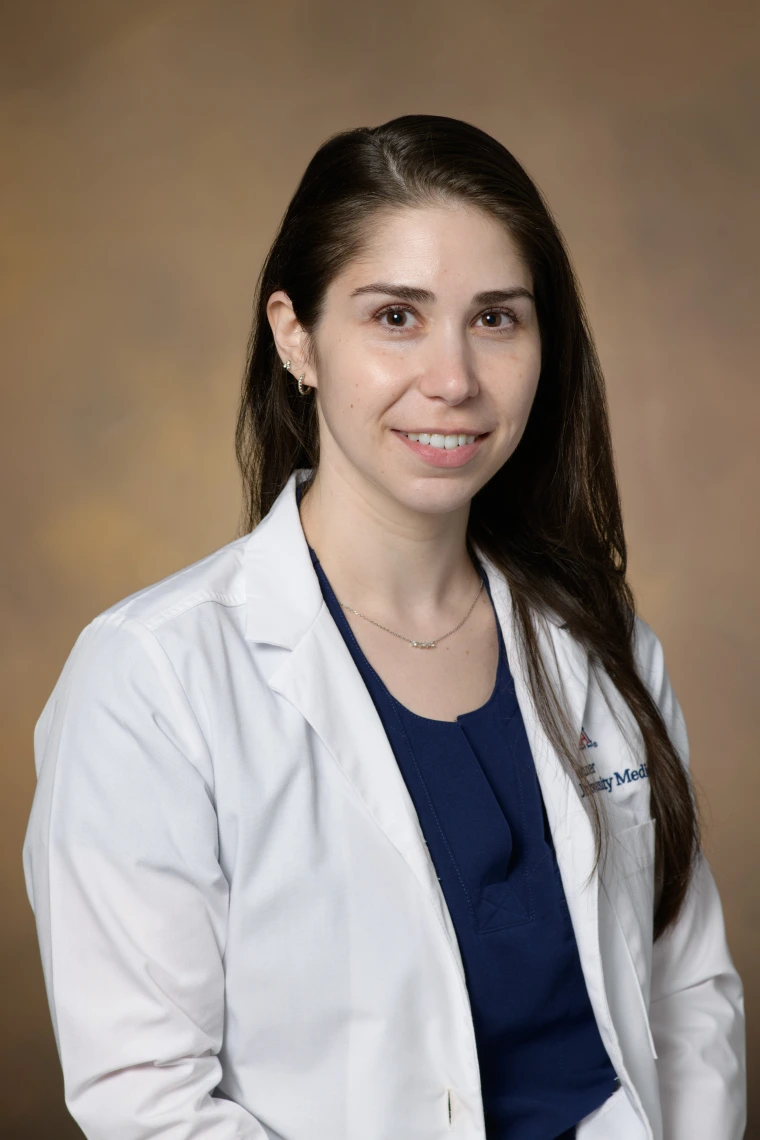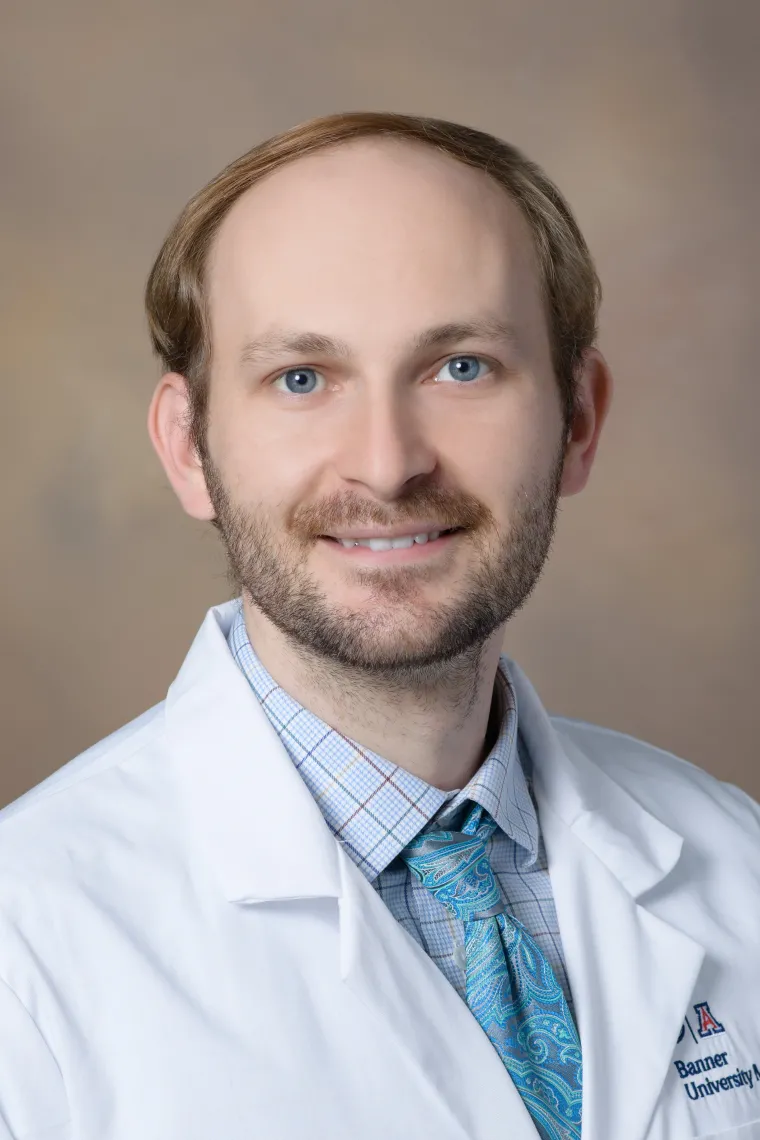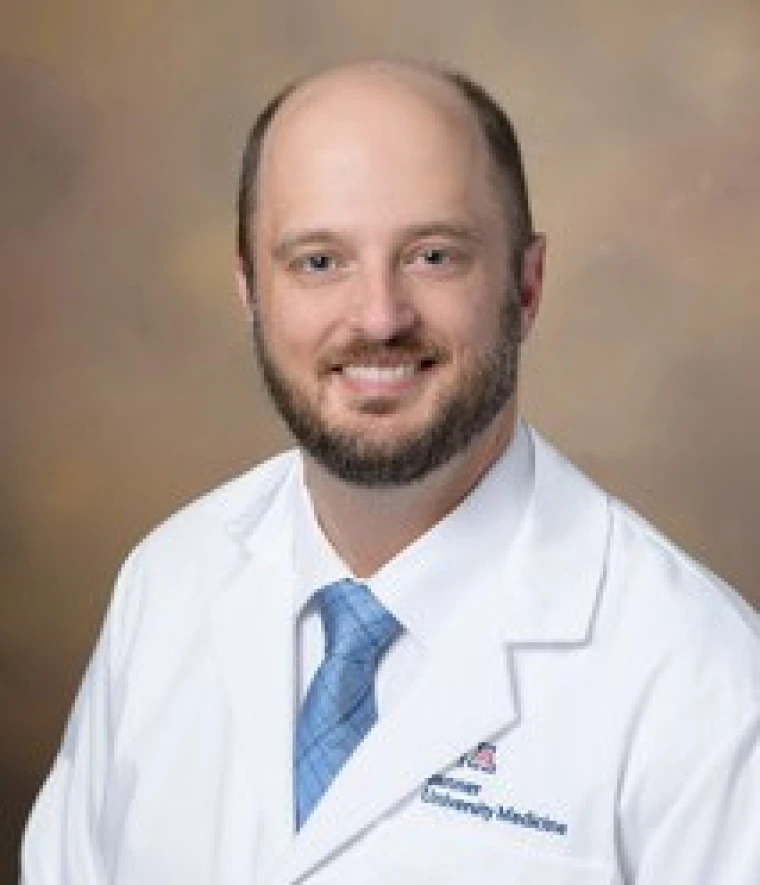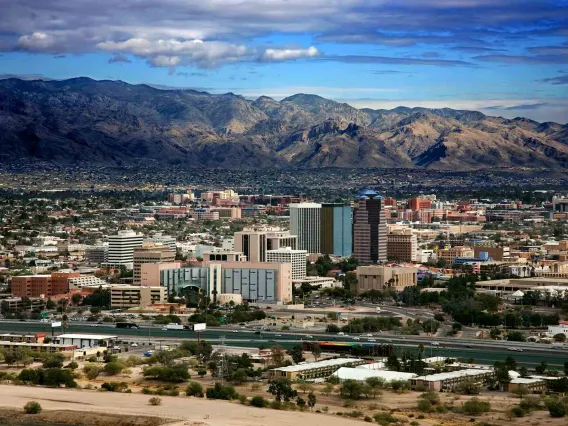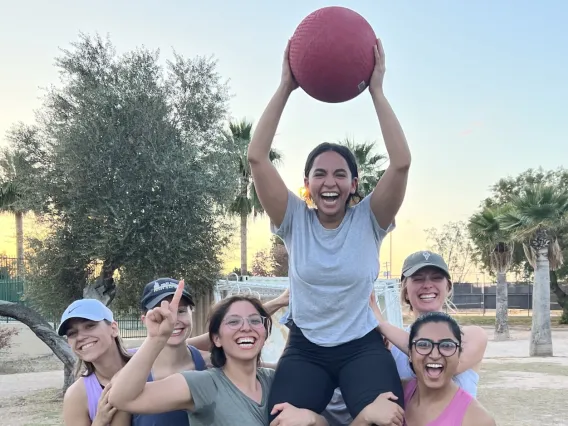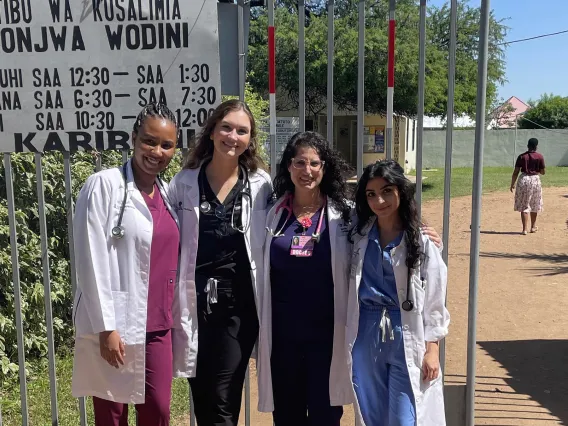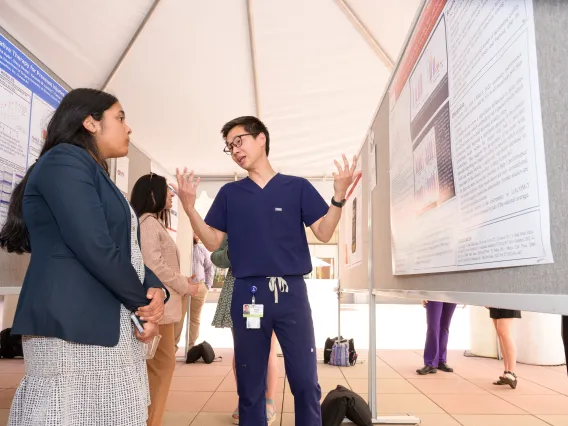Emergency Medicine
Medical Toxicology Fellowship: Leadership, Research and Education Focus
The Medical Toxicology Fellowship emphasizes leadership, research and education, with special focus areas including envenomations, environmental and occupational exposures, addiction medicine and withdrawal, hazardous exposures, and preparedness.
The two-year Medical Toxicology Fellowship at the University of Arizona College of Medicine – Tucson Department of Emergency Medicine is dedicated to high-quality education, patient care and research. Fellows gain hands-on experience with various toxicologic conditions and benefit from a comprehensive didactic curriculum grounded in ABEM’s Core Content. Banner – University Medical Center, Arizona’s largest academic hospital, with more than 60 accredited residencies and fellowships, hosts our program at their Tucson and South campuses. Fellows participate in TOX-SIM cases at Arizona’s largest medical simulation lab (ASTEC) and see patients as consultants at the bedside in various settings (ED, ICU, PICU, observation and toxic exposure clinic).
Faculty members serve as medical directors and consultants for the Arizona Poison and Drug Information Center. Faculty also offer remote consultations to more than 70 hospitals throughout Arizona. Our faculty also lead the core toxicology rotation for four emergency medicine, one internal medicine and one psychiatry residency, and they are recognized nationally and internationally for their teaching and expertise. Our department serves as the international headquarters of the Advanced Hazmat Life Support course, reinforcing its global impact on toxicology education and research.
- Banner – University Medical Center is Arizona’s largest academic hospital, with more than 60 accredited residencies and fellowships
- Facilities include southern Arizona’s largest trauma center, pediatric emergency and ICU, and psychiatric hospital
- The 75-year-old Arizona Poison and Drug Information Center is one of the oldest poison centers in the country, and is located adjacent to the College of Medicine – Tucson and Banner clinical facility
- Arizona Simulation Technology and Education Center (ASTEC) is a high-tech facility that focuses on interprofessional learning opportunities for all levels of health care education, including toxicology education
- We are a part of the Radiation Injury Treatment Network, a national network of medical centers with expertise in the management of bone marrow failure
- The Department of Emergency Medicine is home to internationally recognized Advanced Hazmat Life Support, and sponsors more than eight fellowships in emergency medicine
Our mission is to advance research and education in medical toxicology, and to improve exposure prevention and clinical care of patients exposed to medications, performance-enhancing substances, dietary supplements, drug of abuse, natural toxins, envenomations, and environmental and occupational hazards, including pollutants, and to improve patient and public health, as well as to alleviate suffering from these exposures.
- To train physicians, advancing their knowledge of preventive measures, processes, devices and medications to treat exposures to natural and synthetic chemical hazards.
- To train physicians, making them well versed in the effects of chemical exposures in humans and prepare them to give state-of-the-art treatment to patients suffering from chemical exposures, adverse drug effects, medication overdoses, interactions of chemicals, environmental and occupational exposures, use of chemicals for mind-altering effects or physical enhancement, withdrawal syndromes and envenomations.
- To train physicians to apply public health measures, including using poison and drug information centers, pharmacovigilance, toxicovigilance and collaboration with public health agencies, as well as developing public health regulations and policies to mitigate and minimize the hazardous effects of natural toxins and synthetic toxicants in human populations.
- To expand knowledge in the field of medical toxicology through research and publications in toxicovigilance, poison center electronic health record data analysis, clinical trials, institutional review board processes, and hypothesis producing case reports or case series.
- To train physicians who have integrity, accountability and commitment to excellence in their professional lives.
- To provide an atmosphere of respect, compassion, collaboration and diversity of people and thought.
Medical toxicology is a required rotation for second-year emergency medicine residents in both the Banner – University Medical Center Tucson and South programs and for emergency medicine PharmD residents. It is an elective for residents from other specialties, including pediatrics, internal medicine and family medicine. It is also a fourth-year MD and PharmD student elective. The rotation provides a mixture of formal didactic and clinical experiences and introduces the rotator to poison center operations.
The medical toxicology rotation is based out of the Arizona Poison and Drug Information Center (APDIC) in the R. Ken Coit College of Pharmacy, located on the third floor of Drachman Hall. The rotation lasts four weeks for Banner – University Medical Center South EM residents and two weeks for Banner – University Medical Center Tucson EM residents. Rotators on elective can choose either length with permission from their program director. All rotators are expected to complete the pre-test prior to the first day of the rotation.
Rotators are expected to be in the APDIC or engaging in other toxicology-related activity from 8 a.m. to 5 p.m. Home call begins at 5 p.m. and lasts until 8 a.m. for those on call.
There will be an orientation, including an introduction to poison center operations. The lecture schedule and reading assignments will be provided at this time, and a call schedule will be determined.
At the end of the rotation, the rotator will complete an evaluation.
- Fellows have specific longitudinal exposure to addiction medicine through Banner consult services that offer opiate assistance and referral lines
- We are a fully funded fellowship not requiring any EM department shifts
- Moonlighting is available with good academic standing
The Medical Toxicology fellowship is set at Banner – University Medical Center Tucson (BUMCT), which is a Level 1 trauma center, burn center and pediatric emergency department. We also cover Banner – University Medical Center South (BUMCS), which is a psychiatric-receiving hospital.
Our fellowship activities are set at Arizona Poison & Drug Information Center (APDIC), which covers all counties in Arizona other than Maricopa County. APDIC is one of the oldest poison centers in the country and has been in continuous operations since 1954. APDIC is a center of excellence at the University of Arizona R. Ken Coit College of Pharmacy and is a recognized center for research into antivenoms for rattlesnake and scorpion envenomations. APDIC and medical toxicology also are well-recognized for Advanced Hazmat Life Support (AHLS), preparedness and collaboration with emergency medical services (EMS). Medical toxicology in collaboration with Mel and Enid Zuckerman College of Public Health also is in involved in environmental justice, assessment of indoor air quality, and works with pediatric environmental health specialty units of Region 9 of the Environmental Protection Agency (EPA).
Fellows are expected to oversee medical and pharmacy residents and students in rotation in medical toxicology. They are expected to publish, be involved in medical research and contribute to prevention treatment protocols.
Adult and pediatric critical care rotations are available to fellows based on need. Addiction medicine rotation at both BUMCT and at the Southern Arizona Veterans Affairs Health Care System (SAVAHCS) is also available upon request.
All fellows are expected to become AHLS instructors, both in hazmat and radiological exposures, within their first year and teach at national and international AHLS gatherings.
The EMS rotation with Dr. Robert French includes participation in disaster exercises with City of Tucson Fire Department and local EMS agencies is expected. As a high-level preparedness, fellows also have the opportunity to rotate with Dr. Frank Walter and participate in state of Arizona exercises for disasters, including both chemical and radiological events.
Medical toxicology faculty have appointments in the College of Medicine – Tucson, R. Ken Coit College of Pharmacy and Mel and Enid Zuckerman College of Public Health. The faculty work closely with state of Arizona for disaster preparedness and EMS response to environmental and chemical disasters.
The College of Medicine – Tucson and R. Ken Coit College of Pharmacy have departments in medical pharmacology, pharmacology and toxicology, all of whom are closely affiliated and perform and participate in tabletop research.
For more information on the Medical Toxicology Fellowship, please reach out to our Medical Toxicology listserv at medtoxfellowinfo@list.arizona.edu still active?
On weekdays (except for conference days) the rotators will arrive at 8 a.m. and review all active cases from both BUMCS and BUMCT and 63 other hospitals followed by the Arizona Poison and Drug Information Center (APDIC). They will present these cases to the attending medical toxicologist at morning rounds, usually at 9:30 a.m. Bedside rounds will also be conducted for admitted patients at Banner – University Medical Center Tucson and South campuses. Medical student clerkships can be research or clinical rotations but no less than four weeks in duration.
- Rotators will see all consults from 8 a.m. to 5 p.m. and leave a written note for the requesting service.
- When not evaluating patients, rotators are expected to be at the APDIC.
- Lectures will be given after rounds according to the didactic schedule issued at the beginning of the rotation.
- Each rotator will spend two five-hour shifts answering calls under the supervision of a Certified Specialist in Poison Information (CSPI).
- All rotators have to document listening to 20 incoming calls to the APDIC.
- Rotators may be assigned mini-projects to be completed during the rotation.
- BUMCS residents are expected to complete 20 consultations; 70% should be new consults.
- BUMCT residents are expected to complete 10 consultations; 70% should be new consults.
- Residents are expected to participate in home calls. The number of home calls will depend on the total number of residents on service. Residents are not allowed to take more than six consecutive home calls without a day off.
- Vacations are not allowed without prior approval of the program director and the toxicology attending on service.
- Each rotator will also be expected to complete and present a project by the end of the rotation. This can consist of an APDIC chart review of a particular intoxicant or an in-depth presentation on interesting or controversial topics in toxicology.
- Residents and medical students will be supervised by medical toxicology fellows and faculty on service.
At the end of the rotation, the rotator will complete rotation evaluation.
Lecture list
- Intro to Poison Center Operations
- General Management of the Poisoned Patient
- Envenomations – Reptiles
- Envenomations – Arthropods
- Toxic Alcohols
- Aspirin
- Acetaminophen
- Psych Meds
- Critical Heat Illness
- Drugs of Abuse
- Cardiovascular Toxins
- Anticonvulsants
- Teratology
- Alcohol Emergencies
Additional lectures may be given at the discretion of toxicology faculty.
Reading List
Required and optional readings will be provided in a binder on the first day of the rotation.
The following sources should be used for additional readings:
- Goldfrank’s Toxicologic Emergencies, 10th Edition
- Poisoning and Drug Overdose, 6th Edition
How to Apply
To explore the outstanding opportunities of our fellowship, please email Tiani Wright.
All applications must be submitted via the Electronic Residency Application Service (ERAS) by September 15 of the year prior to the start of the fellowship.
Training in Tucson

Learn more about the residency and fellowship programs at the College of Medicine – Tucson.
Contact


